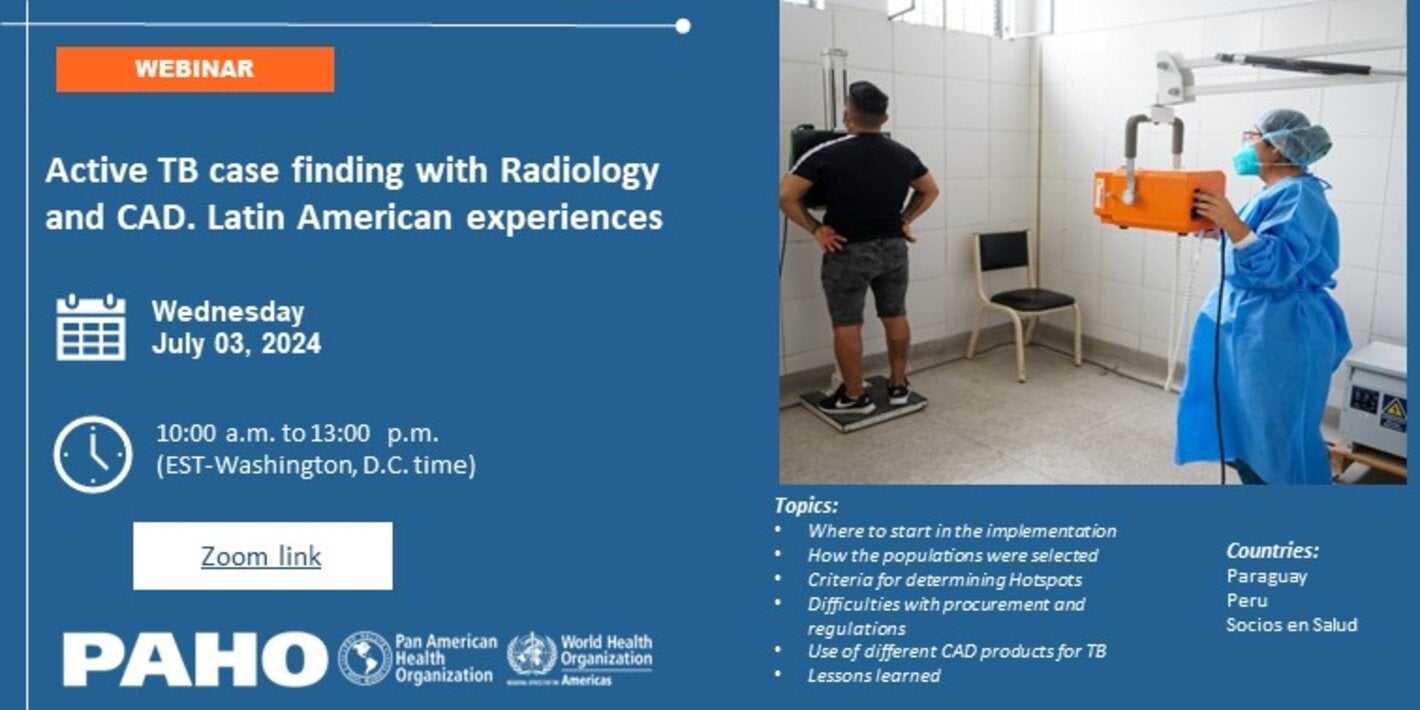
Context
Tuberculosis (TB) remains a public health problem. In 2022, WHO estimates that there will be 325 000 cases of TB in the Region, of which only 242 000 have been reported, leaving a significant diagnostic gap of 83 000 people with TB who do not have access to timely diagnosis and treatment. To close this gap and accelerate TB elimination efforts, a paradigm shift in the response is needed, prioritizing the active cases finding and treatment of TB and TB infection, which will allow us to stay one step ahead of the epidemic.
There is a need to increase TB screening, prioritizing the most vulnerable populations, such as people living in poverty, migrants, prisoners, people living with HIV, people with diabetes, people with immunosuppression, and other risk groups, as well as communities with a high TB burden.
WHO has recommended using effective combinations of portable and ultra-portable digital X-ray systems in conjunction with CAD solutions for effective TB screening, rather than human readers to interpret digital chest X-ray in TB screening. One of the obstacles to the widespread use of digital radiology in TB programs is the shortage of human readers for image interpretation. There are experiences of the use of these technologies and innovations for screening TB cases in the region.
The purpose of this second section is to present the most CAD experiences in the use of digital radiology, where we can analyze where to start, the operational difficulties, how the selection of populations and hotspots was carried out and what have been the main results as well as the lessons learned for the improvement of the campaign.
This activity will be translated into English, Spanish and Portuguese.
Date
Miércoles, 3 de julio de 2024
Time
10:00 am - 01:00 pm (Washington DC Time)
